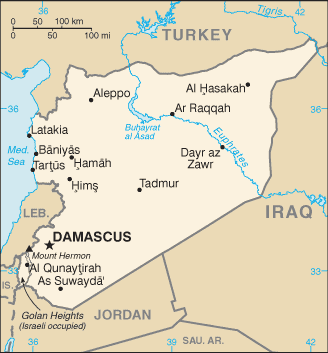Just a couple of months out from inauguration, President Trump has been pushing for some pretty substantial escalations of America’s involvement in the ISIS war. This is true the world over, with special forces being deployed in growing numbers, but nowhere is it more obvious than in Syria, where the US has gone from a few hundred troops to a few thousand.
 As those troops increase, so do the military goals being set out for Pentagon commanders, which has many of them concerned that they are facing large-scale mission creep, and are being pushed in the direction of scrapping previous efforts to make sure local forces were doing all the heavy lifting on the ground, and that US troops were just facilitators.
As those troops increase, so do the military goals being set out for Pentagon commanders, which has many of them concerned that they are facing large-scale mission creep, and are being pushed in the direction of scrapping previous efforts to make sure local forces were doing all the heavy lifting on the ground, and that US troops were just facilitators.
This was already less and less true in Iraq, where under the Obama Administration the deployment was in the 5,000-6,000 troop range. But in Syria it is far more obvious that the limited number of allies on the ground aren’t going to be the ones doing more, and faster, in the fight, but rather the US troops are.
Some officials are said to be convinced that the escalation is less about broadening the mission than about speeding up the mission they already had, though this seems to be a split among leadership officials, with many also believing that the allied forces are going to quickly be sidelined in favor of more US-dominated operations in the seemingly endless conflict in Syria.
Already, deployments are expanding well beyond simply “advising” in the fight against ISIS in Syria, with US Marines deployed with howitzer, and with expectations that they’re going to be firing them. And in a move totally disconnected from the ISIS war, US Army Rangers were deployed to Manbij, apparently just to keep Turkey from invading the Kurdish-held city.
These deployments are just the tip of the iceberg, with another 1,000 troops to be directly deployed to Syria, and some 2,500 more on the way to Kuwait, where they’ll be waiting for any commander in Iraq or Syria to find something for them to do. With the fight escalating in all sorts of ways, they likely won’t be waiting long.


